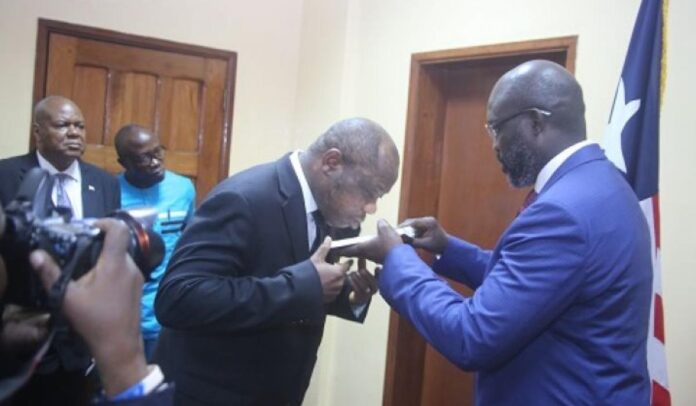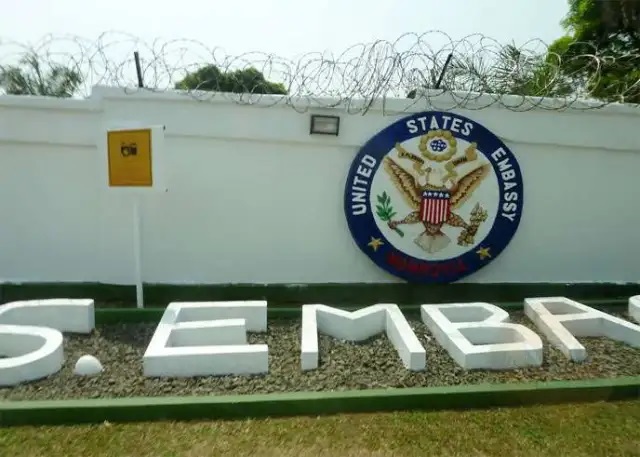MONROVIA – In the wake of runoff elections in Liberia, President George Weah’s harmonization policy, implemented by Finance Minister Samuel D. Tweah, has emerged as a significant factor that has contributed to Weah’s declining popularity which has gravely been exploited by the main opposition candidate Joe Boakai whose now leads in the runoff polls.
The policy, which resulted in salary cuts for over 70,000 civil servants, had triggered widespread discontent among Liberians, including Weah’s own party’s members, leading to mounting opposition against the president.
Finanace Minister Samuel D.Tweah introduced the harmonization policy as part of an effort to streamline government expenditures and address the country’s economic challenges.
The policy, according to Finance Minister Samuel D. Tweah, was aimed at addressing salary disparities and ensure a fair distribution of resources among civil servants.
However, the sudden implementation and the scale of the salary cuts caught many employees off guard and has caused significant hardships for those affected.
The decision to reduce salaries was met with public outrage, particularly from civil servants who saw their already modest incomes further diminished.
The policy’s impact was felt across various sectors, including education, healthcare, and public administration, leading to surge in anti-government sentiments.
There were threats from some affected Liberians to also harmonize the votes of the Liberian leader during general and presidential elections-meaning they would not vote for President Weah and the CDC during election times.
The consequences of the harmonization policy have been particularly severe in President Weah’s traditional strongholds of Montserrado County which hosts Monrovia, the capital city of the Republic of Liberia, where he had previously enjoyed significant support.
According to Concord Times, it has discovered that the discontentment among Weah’s own supporters had eroded his political base, resulting in increased opposition and a decline in his popularity.
This has culminated in the current runoff elections, where the opposition candidate, Joe Boakai, has gained momentum and is now leading in the vote count.
The opposition has capitalized on the discontent caused by the harmonization policy and other wrong economic policies implemented by the CDC Government; as well as rampant corruption.
President Weah had promised to reverse the salary cuts and prioritize the welfare of civil servants. But he did not do that.
Boakai’s campaign has resonated with many Liberians who feel disillusioned by Weah’s administration anti-people economic policies which are viewed as evidence of the government’s disconnect from the needs of the masses. CDC came to power on the pro-poor mantra. But it has changed.
President Weah had acknowledged the hardships faced by civil servants and expressed a commitment to finding a sustainable solution. However, these efforts may be too little, too late, as the opposition’s message strikes a chord with voters who have experienced firsthand the negative effects of the harmonization policy.
As the runoff elections continue, the outcome hangs in the balance, with Weah’s presidency now at stake. The harmonization policy, intended to improve efficiency and fairness in government spending, has instead become a major stumbling block for Weah’s political career, significantly weakening his position and providing an opportunity for the opposition to gain ground.
The final results of the runoff elections will determine whether Weah can recover from the backlash caused by the harmonization policy or if the discontentment among civil servants and voters will lead to a change in leadership, with Joe Boakai assuming the presidency.







